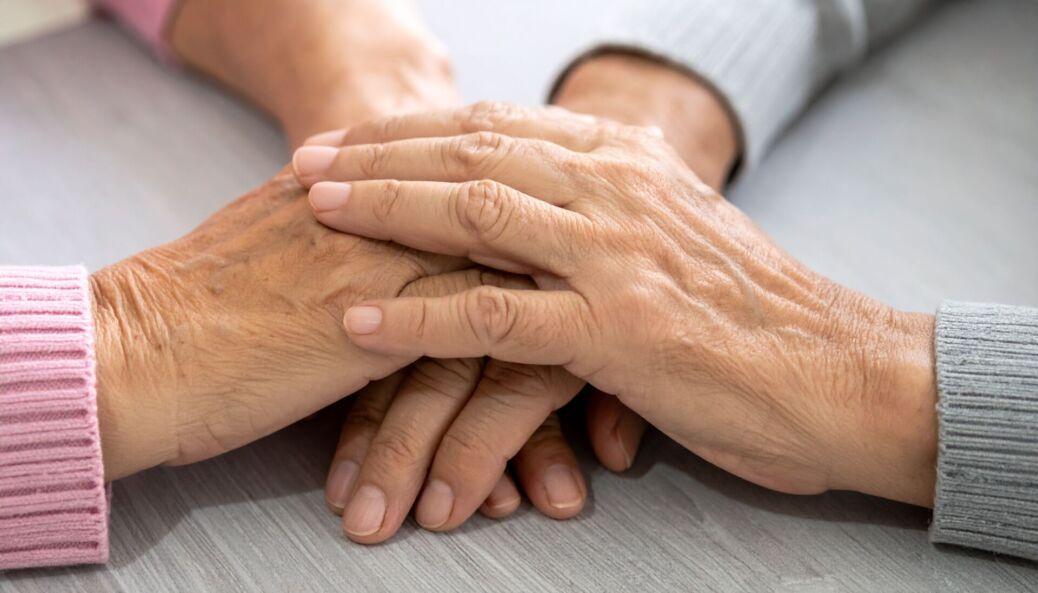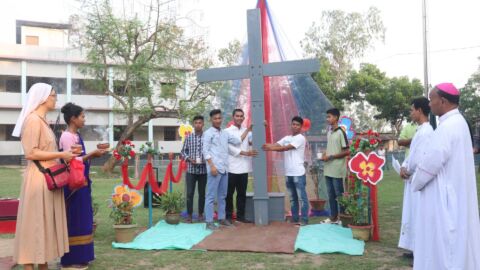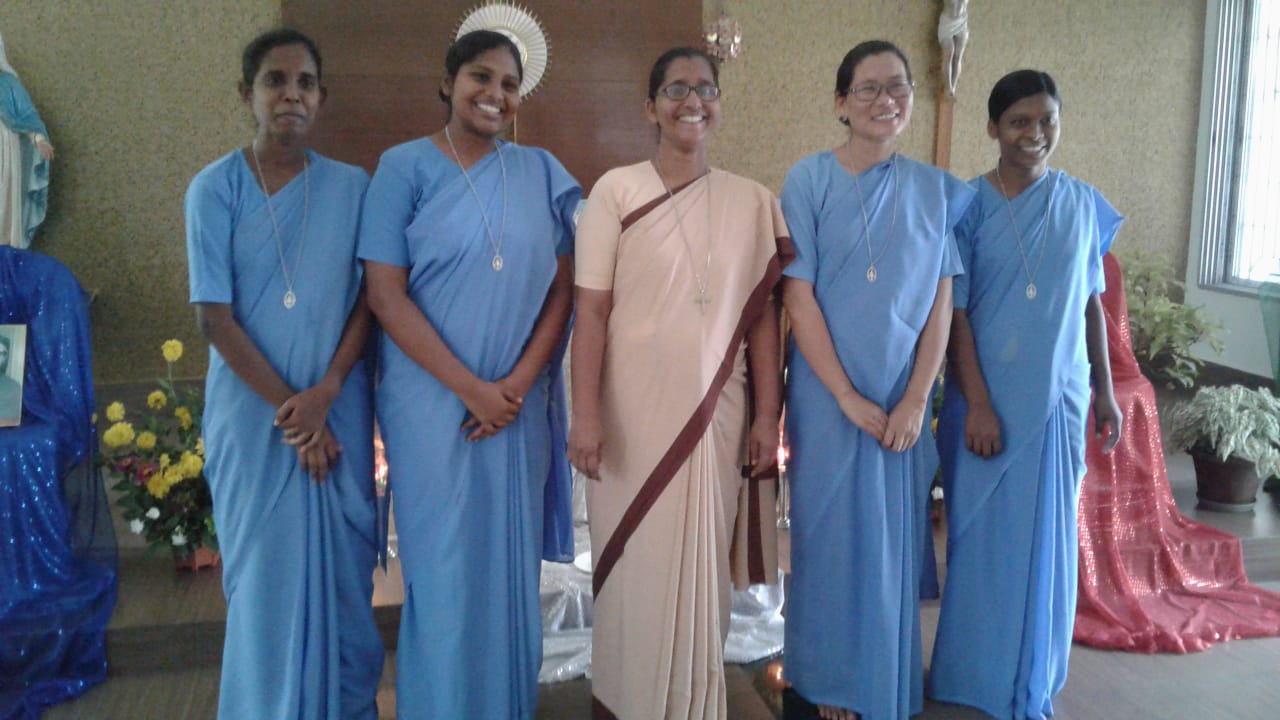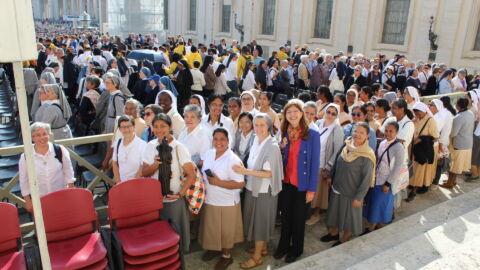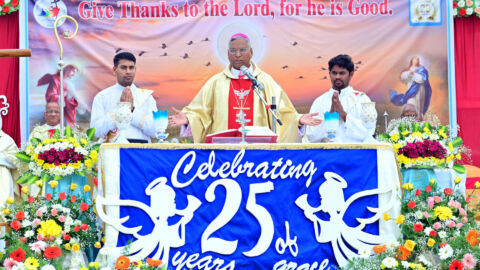Almost coinciding with the beginning of the 2025 Jubilee, after having reflected in the community on the bull of indiction Spes non confundit, with Sr. Ursula I started a small pastoral activity with the elderly at a retirement home, not far from our community in Torre Gaia, Rome.
Pope Francis’ words on the paths of hope and the signs of the Kingdom outlined in the document have resonated deeply in us, calling for a concrete response:
“The elderly, who often experience lonliness and a sense of abandonment, deserve signs of hope”.
Without a definitive plan, but drivern by the desire to respond to that silent cry of lonliness that was already reaching us from several elderly people in the neighbourhood, we took the first step. And, as often happens, walking opens up paths. We experienced it once again.
The weekly visit, consisting of listening and companionship, was soon joined by a monthly celebration of the Eucharist, a shared Way of the Cross during Lent, followed by the possibility of sacramental confession.
- Leandro, of the Missionari Servi dei Poveri, immediately showed himself available to collaborate with fraternal generosity.
For the month of May we are organizing a community rosary, during which we will offer Mary a crown made with paper roses, prepared – where possible – also with the help of our elders.
Now, prayer and in mind, new names and faces crowd in. A feeling of tenderness and respect grows within us for such fragility, for the profound need for attention and affection.
And it is precisely here that Christian hope takes concrete form: in the joy of listening to stories of life, which time had veiled and which, thanks to empathic listening, come back to life, reawakening emotions, feelings and – sometimes- even old wounds, which however can be healed.
I see hope in their faces every time we bring them a flower, a sacred image, a prayer as a gift on their birthdays.
I see hope in their smile when they ask us to come back a sign of their appreciation, but also of the profound need for presence and care.
Even relatives encourage us: we see how often they visit their loved ones and how sensitively they accompany them. This makes us think that, despite the desire of many to continue living with their families or independently, the guests of this facility – small, almost family-run establishment – still feel welcomed and not abandoned.
Finally, we are encouraged by the acceptance of the management status, which values the spiritual assistance we offer and recognizes the improtance of Christian testimony in the daily lives of the elderly. A discreet presence, but rich in meaning, capable of recognizing and safeguarding the wisdom of life that the elderly carry with them.
Sr. Angela Corno, Roma

